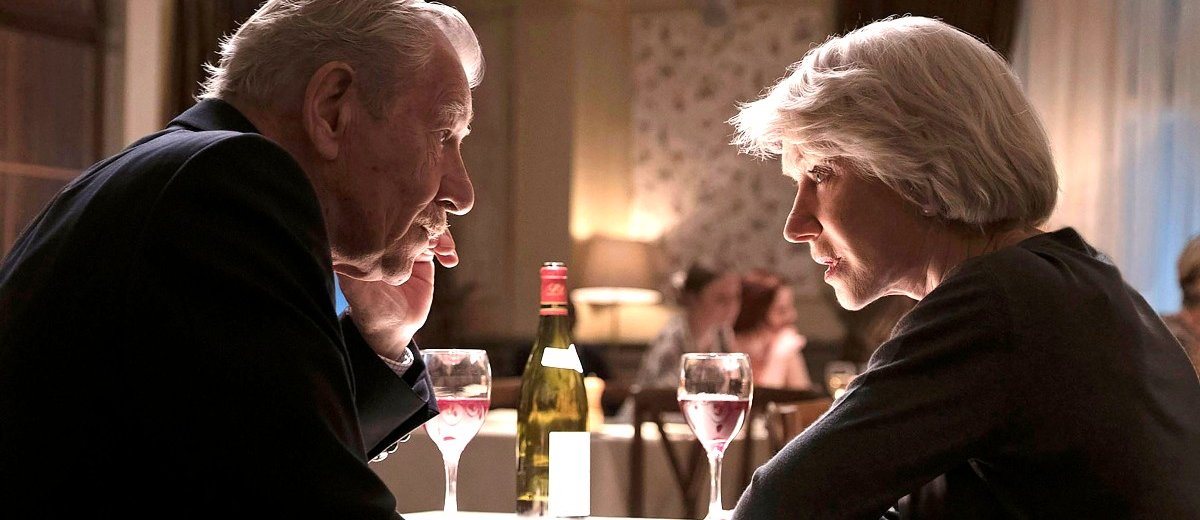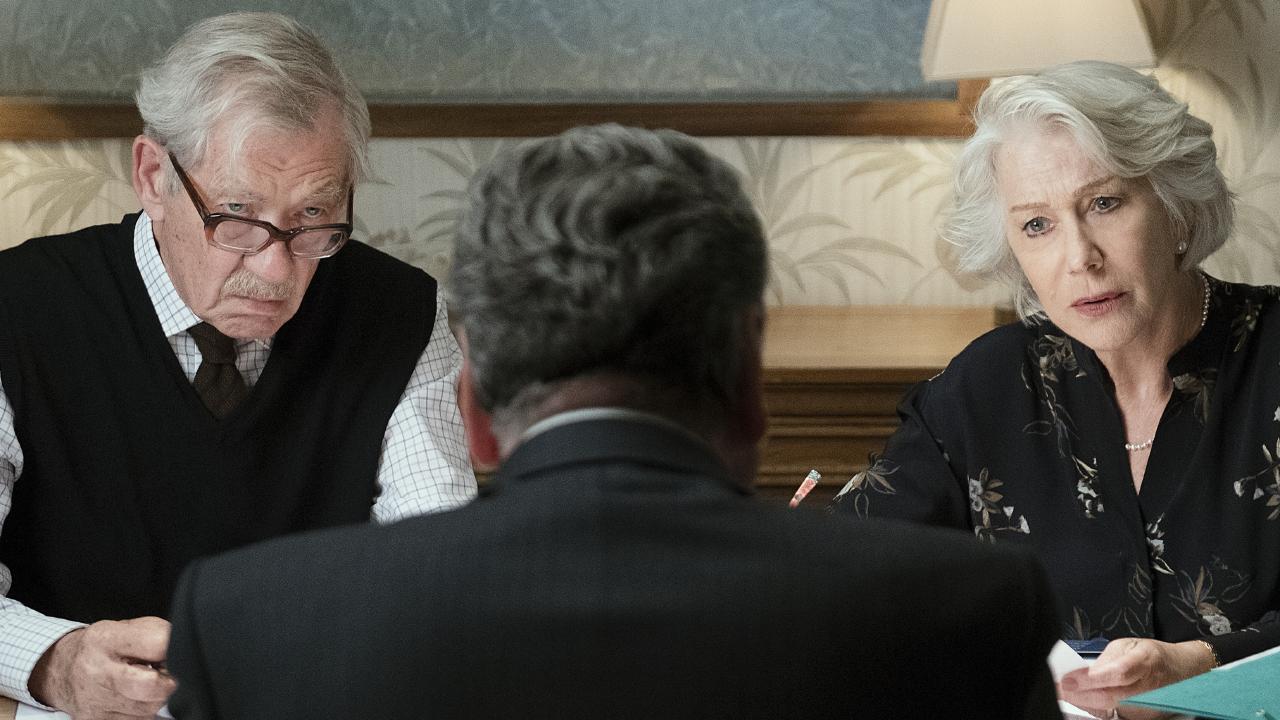Lying is the cornerstone of filmmaking. Off screen, stars lie about their age, producers lie about how much money they need to make a movie, directors lie about how long it will take. On screen, actors pretend to be someone they’re not, trying to bring the ring of truth to lies written by a screenwriter. And that’s to say nothing of the lying that’s part and parcel to many actual plots. In short, if you are going to name check lying in your title, you better justify it by having something new and interesting to say on the topic.
There are a lot of things you could call Bill Condon’s The Good Liar, but “new and interesting” is not one of them. Perhaps the most “interesting” thing about it is that it stars two actors who are three quarters of a century old, an increasing rarity in a cinematic climate in which youth are thought to drive the market more than ever before. Helen Mirren is 74, and still doesn’t look it. Ian McKellen is 80, and starting to look it. In terms of the craft of acting, though, both are still extremely agile. Agile liars, as it were.
The story takes place in the year 2009, landing the film in that weird middle space between period piece and present day. Mirren’s character is impressed by her ability to unlock a car by clicking a button, and they watch Inglourious Basterds in the cinema, but otherwise, it could be 2019 as easily as it could be 2009. There’s a reason it needs to be set at this time, but that doesn’t get revealed until the second half. Nicholas Searle wrote the novel on which this was based four years ago, at which point 2009 was a bit closer to present day.
McKellen’s Roy meets Mirren’s Betty on a website designed to match seniors, and the first thing he confesses is that the name he used on his dating profile (Brian) is not his real name. He tells her, you see, because there’s nothing he deplores more than deception. That may be a good lie, but Betty may be capable of lying as well, as she also gave a name other than her own on the profile. Realising they are both a bit at sea in an environment that relies on a certain amount of illusion, they start to hit it off, and begin a relationship that is somewhere between a romance and a friendship. See, Betty’s husband died only a year ago, and she’s not fully ready to commit herself to another person.
Roy is ready to commit, because he’s got another endgame in mind. Within minutes of his first date with Betty, Roy appears at a gentleman’s club, where he’s ushered into the back room to liaise with three other men regarding a real estate scam they are planning to pull on some Russian investors. Betty may not be a romantic candidate but a mark, as Roy and his conspirator Vincent (Jim Carter) know that she’s worth a couple million pounds. Roy’s cocky about his abilities, too, letting his face slacken into cold calculation before Betty’s back is barely even turned.
Back to the notion of “new and interesting,” it is indeed novel to see a cat and mouse game being played in the senior set. We’re accustomed to seeing both male and female movie characters try to relieve their marks of their excess financial resources, while concocting elaborate ruses to demonstrate exactly how trustworthy they are. When you’re an octogenarian, you have even more tools at your disposal for such a ruse. Roy undercuts his own sense of threat, for example, by faking a balky knee, which leaves him with questionable mobility in general, and a tall task indeed to get up the stairs in his three-storey walk-up apartment. He makes sure Betty sees this, and it’s not long before she’s inviting him to live in the spare room in her house until he’s back on his feet.
When the action is confined to 2009, the film has a good energy that keeps it moving along at a satisfying clip. The suspense is juiced by Betty’s grandson Steven (Russell Tovey), who sees through Roy where Betty can’t. He’s maybe even a bit hypersensitive to warning signs that would only qualify as such if you knew you were dealing with a con man.
Around midway through, though, The Good Liar starts to rely somewhat heavily on a flashback structure, which saps the momentum of a film that seemed content to exist in real time. It’s not a problem endemic to the flashback as a cinematic tool, but when it is introduced for the first time at the hour mark, it seems hackish, making you feel you’re watching a different type of movie than you thought you were. What’s more problematic is what this flashback structure represents in terms of the film’s themes, which go from pleasantly modest to overreaching from this point onward.
It’s at this point that the film’s schizophrenia is revealed. The basic details make the script feel like it could have been written 30 years ago, but maybe not in a bad way. However, halfway through the film starts to steer toward something far more 2019. It’s not a bad idea to try to give your movie a modern-day relevance, but here that attempt becomes increasingly ham-fisted as the movie moves closer to its conclusion. By the waning moments of The Good Liar, the token gestures toward modern political correctness become groan worthy.
That’s a shame because the film’s title does gain in resonance as it moves along. Lying is indeed a central component of this film, perhaps even in a way that justifies the title. The road to getting there, though, is paved with genre clichés and suspect choices. The liar may indeed be good, but the film can’t quite say the same thing.


